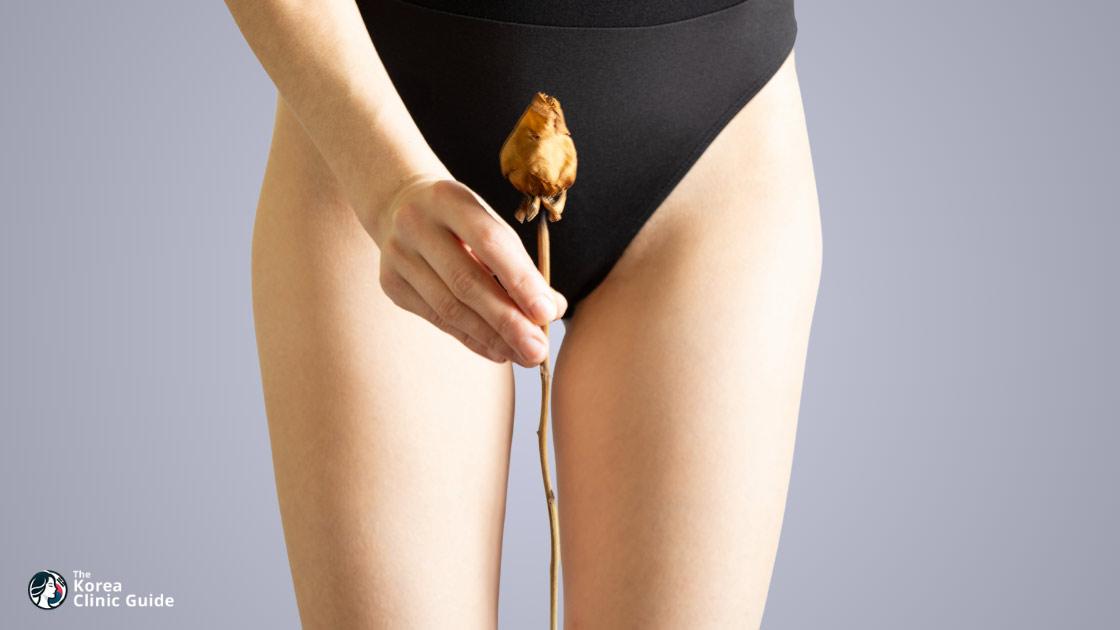Medical Tourism Blog
IUD Birth Control (Mirena) in Korea | Best Clinics, Costs, Procedure Types & More

Table of contents
- What Is IUD Birth Control (Mirena)?
- Best IUD Birth Control (Mirena) Clinics in Korea
- IUD Birth Control (Mirena) in Korea
- Alternatives to IUD Birth Control (Mirena)
- Conclusion
Have you ever wondered why the Mirena IUD has become a top choice for women seeking long-term birth control in Korea? This article delves into the reasons behind the rising popularity of the Mirena IUD, examining its effectiveness, cultural influences on contraceptive decisions, and how it's reshaping reproductive health in Korea.

What Is IUD Birth Control (Mirena)?
Intrauterine devices (IUDs) are a form of long-term, reversible birth control that have become increasingly popular due to their effectiveness and convenience. Mirena is one of the most well-known brands of hormonal IUDs, and it is specifically designed not only to prevent pregnancy but also to provide therapeutic benefits for various gynecological conditions.
How Mirena Works
Mirena is a small, T-shaped plastic device that is inserted into the uterus by a healthcare professional. It releases a controlled amount of the hormone levonorgestrel over time, which thickens cervical mucus to prevent sperm from reaching an egg, inhibits sperm from fertilizing an egg, and thins the uterine lining. This multi-faceted approach makes it a highly effective option for birth control with an efficacy rate of over 99%.
Who Can Benefit from Mirena?
Mirena can be particularly beneficial for individuals seeking an effective and low-maintenance method of contraception. It's suitable for most women, including:
- Women who prefer a long-term birth control method: Mirena can remain effective for up to 5 to 7 years, depending on the version.
- Those who have difficulty with daily birth control methods: Because it is placed once and forgotten, it eliminates the need for daily pills or regular visits to the pharmacy.
- Individuals with menorrhagia (heavy menstrual bleeding): Mirena has been shown to decrease menstrual flow and is sometimes prescribed for this condition.
- Women seeking pain reduction during menstruation: Many users experience lighter and less painful periods after Mirena insertion.
- Those who want a discreet form of contraception: As an internal device, it does not require frequent doctor visits or purchasing prescriptions each month.
Types of IUD Procedures
The insertion procedure for Mirena is relatively simple and quick, typically performed in a healthcare provider’s office. Here’s a brief overview:
- Initial Consultation: A general examination and discussion to ensure an IUD is a suitable choice.
- Insertion Appointment: The actual insertion involves using a speculum to widen the vagina followed by inserting the IUD through the cervical canal into the uterus.
- Follow-up Visits: A check-up is usually suggested a few weeks after insertion to ensure the IUD is correctly positioned.
Pros of Mirena
- Effectiveness: Offers over 99% efficacy in preventing pregnancy.
- Longevity: Provides protection for up to 5 to 7 years.
- No Daily Maintenance: Unlike oral contraceptives, it requires only a single insertion procedure.
- Non-interruptive to Sexual Activity: Once placed, there’s no need to interrupt moments of intimacy.
- Health Benefits: Reduces heavy menstrual bleeding and can alleviate menstrual pain.
- Reversibility: Fertility typically returns quickly after removal.
Cons of Mirena
- Potential Side Effects: Some women may experience side effects such as hormonal changes leading to headaches, mood swings, or acne.
- Menstrual Changes: Irregular periods or spotting can occur, especially in the first few months.
- Insertion Discomfort: The insertion process can be uncomfortable with cramping, though this varies between individuals.
- Risk of Expulsion: Although rare, there is a possibility of the IUD becoming displaced.
- Hormonal Exposure: It might not be suitable for individuals looking to avoid hormonal contraceptives.
In summary, Mirena offers a compelling choice for many, with its low-maintenance nature and therapeutic benefits standing out as key advantages. However, as with any medical procedure, consulting with a healthcare provider is crucial to determine if it meets the specific health needs and lifestyle of the individual user.
Best IUD Birth Control (Mirena) Clinics in Korea
Listed below are the best clinics in Korea:
| Clinic Name | Key Features | Special Techniques |
|---|---|---|
| SH Clinic | Comprehensive women's health services, male urology, couple’s therapy, cosmetic and plastic surgery, pain rehabilitation, advanced screening and checkup programs | Cutting-edge technology, patient-centered approach |
SH Clinic
SH Clinic in Sinsa is a premier medical facility in Korea, renowned for its comprehensive range of women's health services, including the provision of IUD birth control options such as Mirena. The clinic is dedicated to offering personalized care through a variety of specialized categories, ensuring that each patient receives the most suitable and effective treatment for their needs. With a focus on women's health, SH Clinic provides essential services such as incontinence treatment, solutions for vaginal dryness, and safe abortion services. Additionally, the clinic offers advanced screening and checkup programs, including cervical and ovarian cancer screenings, as well as pre-marital health checks, ensuring early detection and prevention of potential health issues.
Beyond women's health, SH Clinic also caters to male urology needs and offers couple’s therapy and sexual health treatments, emphasizing the enhancement of intimacy and relationship satisfaction for midlife couples. The clinic's diverse offerings extend to cosmetic and plastic surgery, pain rehabilitation, and innovative aesthetic procedures, all delivered with cutting-edge technology and a patient-centered approach. With its commitment to comprehensive care and state-of-the-art treatments, SH Clinic stands out as a leading healthcare provider in Korea, dedicated to improving the overall well-being of its patients.
You can check out their website here: SH Clinic Website
IUD Birth Control (Mirena) in Korea
Korea is increasingly becoming a popular destination for medical procedures, including the insertion of IUDs like the Mirena. Whether you are an expatriate living in Korea or traveling specifically for this procedure, understanding what to expect can help you navigate the experience smoothly.
Understanding the Healthcare System
Korea boasts a robust healthcare system known for its advanced medical technology and high-quality care. The country has a blend of public and private healthcare facilities, offering a wide range of services. As a non-resident, you can access medical services at most clinics and hospitals, though it is advisable to visit internationally recognized clinics with English-speaking staff to ensure clear communication.
Consultation and Appointment
Before you proceed with the procedure, scheduling a consultation with a qualified gynecologist is key. Many clinics in Korea provide opportunities to book appointments online or through phone calls, and some even offer services specifically tailored to international patients. During the consultation, the doctor will discuss your medical history, reproductive health goals, and the specifics of using Mirena, including its benefits, risks, and potential side effects.
Understanding the Mirena IUD
Mirena is a hormone-releasing intrauterine device that serves as long-term birth control, effective for up to five years. Your doctor will explain how it works by releasing small amounts of levonorgestrel into your uterus to prevent pregnancy. This option is usually advisable for those who prefer a set-it-and-forget-it form of contraception. Understanding its mechanism is crucial in ensuring that it aligns with your reproductive health needs.
The Procedure
The insertion of the Mirena IUD is a straightforward procedure, typically performed in the doctor’s office. It is advisable to schedule the insertion during the first week of your menstrual cycle when the cervix is naturally more dilated. This can help minimize discomfort. The procedure itself takes just a few minutes. Some women may experience mild cramping or discomfort during and after insertion, so it is often recommended to have a friend accompany you for support, or plan for some rest afterwards.
Costs and Insurance
| Procedure Price | Korean Won (₩) | USD ($) |
|---|---|---|
| Low Price | ₩1,050,000 | $700 |
| High Price | ₩1,050,000 | $700 |
Exchange rate as of 2025-04-19: 1 KRW = 0.0007 USD
Please note that these prices are approximate guidelines and can vary significantly based on the clinic and your individual circumstances.
The cost of getting a Mirena IUD in Korea can vary depending on the clinic or hospital. It's important to inquire about the total cost upfront, which typically includes the consultation, the device itself, and the insertion procedure. If you have international health insurance, check whether it covers contraceptive devices and procedures in Korea. Some clinics provide packages for international patients, which can be more cost-effective.
Language and Cultural Considerations
Though many healthcare providers in Korea speak English, language can still be a barrier. Depending on your comfort level with the language, it may be beneficial to have a translator or a bilingual friend accompany you. Understanding cultural norms and expectations in medical settings is also advantageous for a smoother experience. Korean medical culture is often characterized by a high level of professionalism and traditional respect for doctors, so showing patience and understanding is usually well-received.
Follow-Up Care
After the insertion, your doctor will likely schedule a follow-up appointment to ensure the IUD is in place and that you're responding well to it. It’s essential to adhere to these follow-ups and report any uncomfortable symptoms or side effects. Korean clinics are generally responsive to patient concerns and offer phone and online support for follow-up queries, ensuring you can maintain ongoing communication from the comfort of your home.
By familiarizing yourself with the process and setting the right expectations, undergoing an IUD insertion procedure like Mirena in Korea can be straightforward and rewarding.
Alternatives to IUD Birth Control (Mirena)
While the Mirena IUD offers effective long-term contraception, it might not be suitable for everyone due to potential side effects or individual health conditions. Here are three alternative methods to consider:
1. Birth Control Pills
Overview: Birth control pills are oral contraceptives that contain hormones, either a combination of estrogen and progestin or progestin alone, which prevent ovulation.
How They Work: These pills work by preventing the ovaries from releasing eggs, thickening the cervical mucus to block sperm, and thinning the uterine lining to prevent egg implantation.
Pros:
- Highly effective when taken consistently at the same time every day.
- Non-invasive and easily stopped if one decides to conceive.
- Can reduce menstrual cramps and make periods more regular and lighter.
Cons:
- Requires daily adherence, which can be a challenge for some users.
- May cause side effects such as nausea, weight gain, or mood changes.
- Increased risk of blood clots, especially in smokers and older women.
2. Nexplanon (Implant)
Overview: Nexplanon is a small, rod-shaped implant placed under the skin of the upper arm. It releases etonogestrel, a form of progestin, for up to three years.
How It Works: The continuous release of progestin suppresses ovulation, thickens cervical mucus, and thins the uterine lining.
Pros:
- Provides long-term protection without the need for daily attention.
- Can be removed anytime if one decides to become pregnant.
- Suitable for women who have difficulty remembering to take daily pills.
Cons:
- Must be inserted and removed by a healthcare professional.
- Possible side effects include irregular bleeding, weight gain, and acne.
- Less common, but possible, side effects include infection at the implant site.
3. Depo-Provera (Injection)
Overview: Depo-Provera is a progestin-only contraceptive injection that is administered every three months.
How It Works: The injection prevents ovulation, thickens cervical mucus, and thins the lining of the uterus.
Pros:
- Requires only four injections per year, which is convenient for those who prefer infrequent contraception management.
- Highly effective with timely injections.
- Can reduce menstrual bleeding over time and may lead to amenorrhea (absence of menstrual periods).
Cons:
- May cause weight gain and a delay in fertility return after stopping use.
- Not immediately reversible, with full fertility potentially taking several months to return.
- Possible bone density loss with long-term use, necessitating calcium supplementation or other preventive measures.
These alternatives each offer their own advantages and considerations, making them viable options depending on individual health needs, lifestyle preferences, and family planning intentions. It is important to consult with a healthcare professional to choose the most appropriate contraception method.
Conclusion
In conclusion, the Mirena IUD has increasingly become a popular choice for birth control among women in Korea, offering a convenient and highly effective long-term solution. Its benefits extend beyond contraception, providing relief for menstrual-related issues such as heavy bleeding and cramping. Despite some cultural hesitations and misconceptions about intrauterine devices, growing awareness and the endorsement of healthcare professionals have helped to demystify the process and encourage its acceptance. As the healthcare landscape in Korea continues to evolve, it is likely that the use of Mirena and other IUDs will become more widespread, empowering women with more control over their reproductive health and enabling them to make informed choices that best suit their personal and medical needs.








